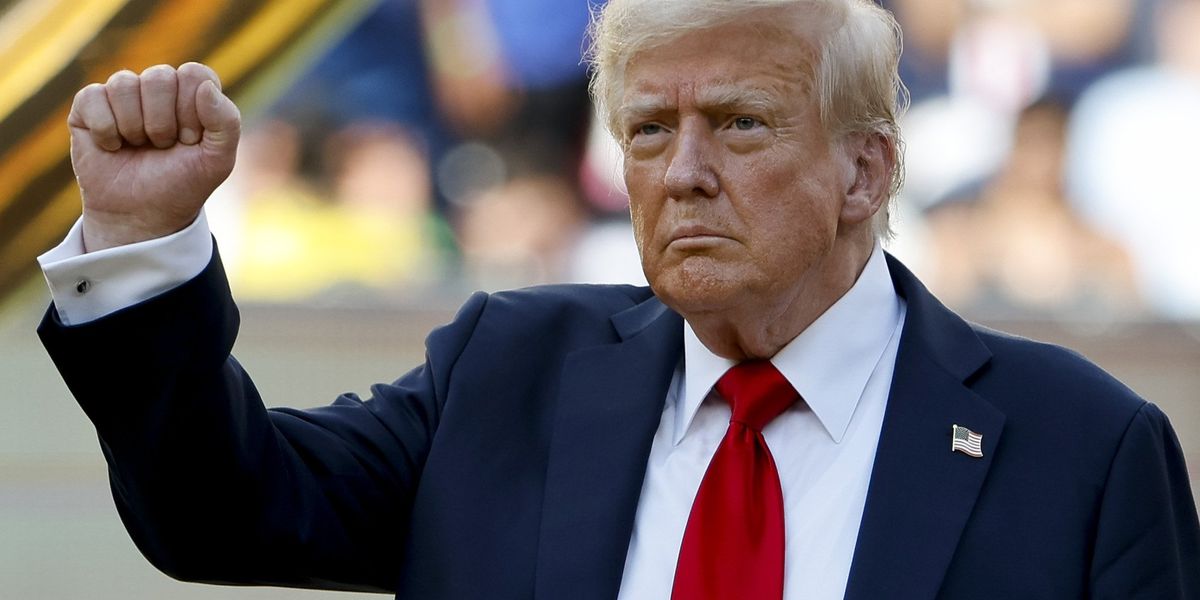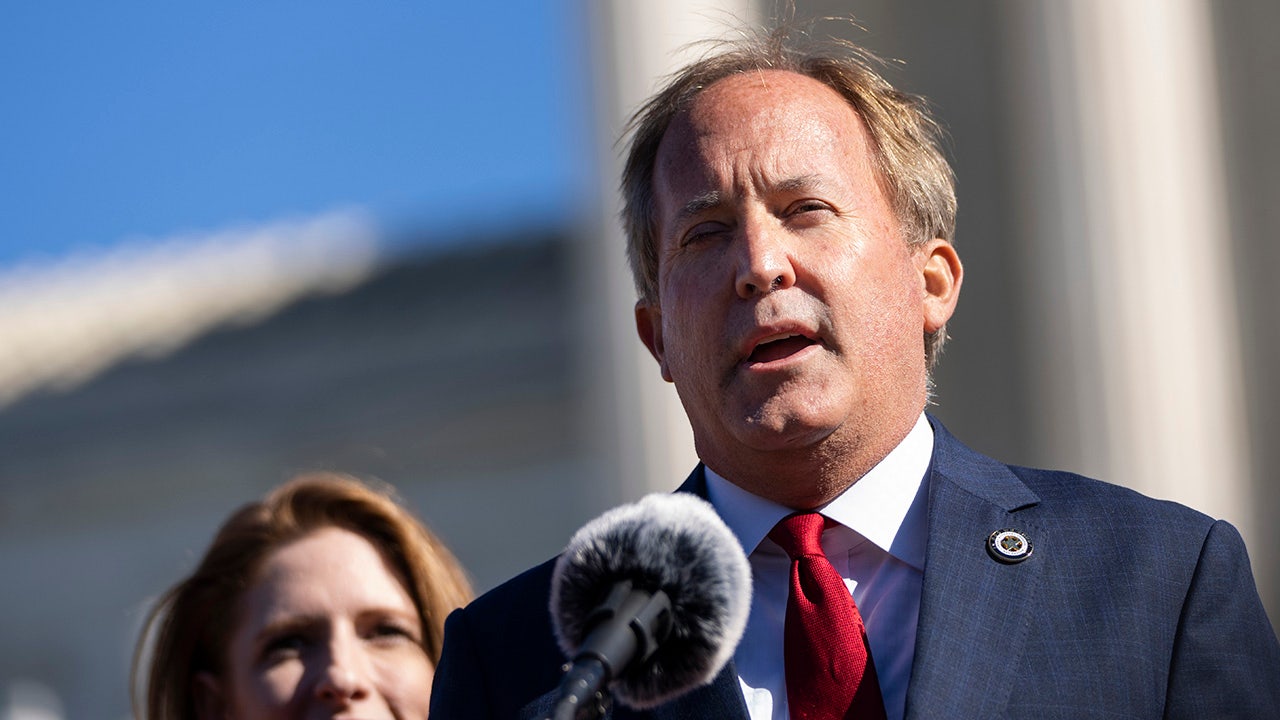“Shark Tank” co-star and businessman Kevin O’Leary weighed in Monday on Fox Business’ “The Evening Edit”, discussing the impact of President Donald Trump’s proposed tariffs on steel, aluminum, and energy imports from Canada and Mexico.
O’Leary emphasized that the tariffs mark the beginning of a larger economic negotiation, potentially leading to greater integration between the U.S. and Canada.
Trump has announced a 25% tariff on steel and aluminum imports from Canada and Mexico, along with a 10% tariff on Canadian oil, natural gas, and electricity.
Dennis Quaid’s #1 Warning for Americans
While the tariffs have generated strong reactions globally, O’Leary noted that they serve as a strategic opening move in reshaping North American trade.
O’Leary dismissed the noise surrounding the tariffs, stating that the broader goal is economic cooperation.
“So all of this to me, if you separate the signal from the noise, forget the noise. The signal is, let’s get an economic union together,” O’Leary said.
The U.S. tariffs have sparked reciprocal trade responses from countries like India, which has imposed tariffs of up to 23% on some U.S. products.
O’Leary predicted that these moves will trigger high-level diplomatic negotiations.
“Those are two different baskets. Obviously, the one that people are talking about quite a bit tonight is India. They’ve got certain product services in different sectors, up to 23%. Now we’re going to have reciprocal tariffs in the U.S. against them. [Indian Prime Minister Narendra] Modi will immediately fly to Washington. The negotiations will begin,” he explained.
O’Leary highlighted Canada’s distinct role in U.S. trade relations, pointing out that the $200 million trade deficit Trump has referenced primarily stems from Canadian energy exports to the U.S..
“It’s the same everywhere. The Canadian situation is unique. Almost the entire 200 million deficit that the president’s talking about comes from one single source. That’s energy coming out of Irving Refineries on the east coast down to Boston, and all of that oil, 4.3 million barrels a day coming in at Alberta into the west,” O’Leary said.
He emphasized that Canada provides the U.S. with its cheapest oil imports, which explains why Trump only imposed a 10% tariff on Canadian energy rather than a higher rate.
“And so that’s the most inexpensive oil [that] the U.S. imports. That’s why he only put a 10% tariff on it. But it’s the beginning of a giant negotiation. Aluminum, 70% of aluminum comes in the U.S. It’s made in Canada for one singular reason,” he continued.
While some critics doubt the feasibility of a U.S.-Canada economic union, O’Leary noted that support for the idea is growing among Canadians.
“What is on the table that now 43% of Canadians want to explore more of? Forget all these tariffs. Let’s join the two economies, become a behemoth, common currency perhaps, and then take on China,” O’Leary stated. “I mean, that’s really what we’re talking about here. We’re talking about the security of the north, not the 49th parallel.”
O’Leary also pointed out that many Canadians prefer the U.S. dollar over their own currency, citing dissatisfaction with Prime Minister Justin Trudeau’s economic policies.
“Let me assure you that 11 out of 10 Canadians would rather trade their Trudeau pesos for American dollars. They already have American dollar accounts. Trudeau has wiped out 41% of their net worth the last nine years,” O’Leary said.
“They want an economic union because it’s good for business. Everybody understands that. The two countries are so intertwined, and they both believe in democracy and free speech and freedom and all the rest.”
Beyond economic leverage, Trump has also used tariffs to pressure Canada and Mexico into strengthening border security.
In response to the tariffs, Canada has committed to increased security measures along its northern border, while Mexico has agreed to deploy 10,000 National Guard troops to its border with the U.S.
During the Biden administration, 8.5 million migrants were encountered at the U.S.-Mexico border, contributing to a surge in fentanyl trafficking, largely driven by Chinese chemical companies.
Meanwhile, illegal crossings at the U.S.-Canada border also increased under Biden’s leadership.
O’Leary emphasized that Trump’s tariffs provide the U.S. with strategic advantages beyond trade.
“Security on energy,” O’Leary said when asked about what the U.S. gains from these tariffs.
“Alberta has five times more oil and gas than the entire United States. Complete security on uranium, aluminum, all of the incredible resources Canada has with only 41 million people there and access to it in a free flow. No tariffs.”
With negotiations set to intensify, Trump’s tariffs appear to be part of a broader plan to strengthen economic ties, increase national security, and secure better trade deals for the U.S..
The opinions expressed by contributors and/or content partners are their own and do not necessarily reflect the views of LifeZette. Contact us for guidelines on submitting your own commentary.
Read the full article here


![Shark Tank’s O’Leary Unveils Real Purpose of Trump’s Tariffs on Canada [VIDEO] Shark Tank’s O’Leary Unveils Real Purpose of Trump’s Tariffs on Canada [VIDEO]](https://www.rvmnews.com/wp-content/uploads/2024/06/2024.06.25-06.32-rvmnews-667b0d2a22c7f.jpg)







![‘Grabbed a Handful of Bones’ [WATCH] ‘Grabbed a Handful of Bones’ [WATCH]](https://www.rvmnews.com/wp-content/uploads/2025/07/2025.07.17-08.19-rvmnews-68795aca9d0b8.jpg)
